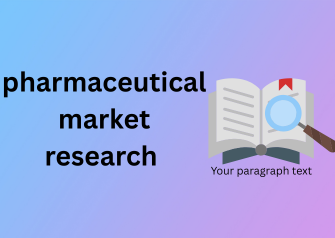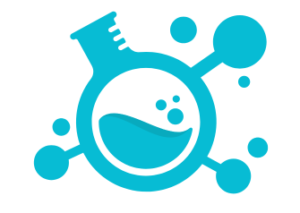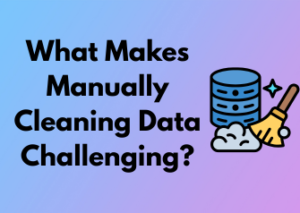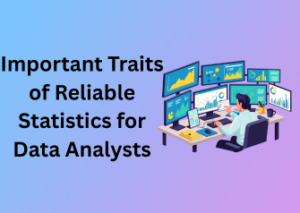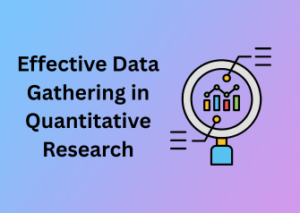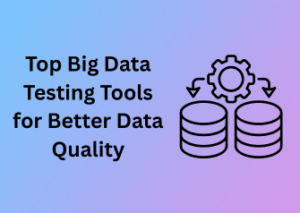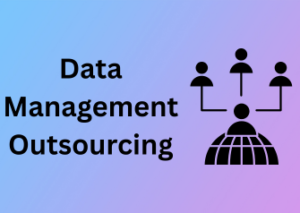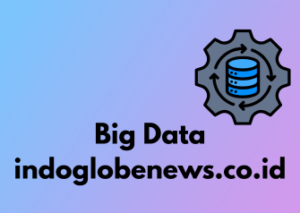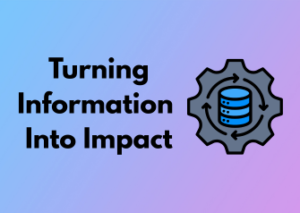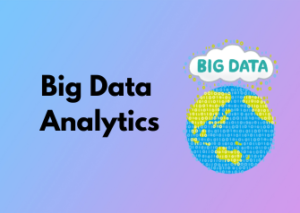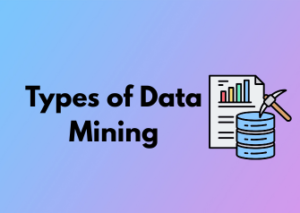Pharmaceutical market research is the cornerstone of innovation and strategic decision-making in the pharmaceutical industry. It’s what helps companies understand not just the medical and scientific landscapes, but also customer needs, industry trends, and competitive dynamics. Let’s break it down to understand why it’s so crucial and how it forms the bedrock of success for pharma companies around the globe.
The Why Behind Pharma Market Research
In an industry as complex and highly regulated as pharmaceuticals, making data-driven decisions is non-negotiable. Every new drug launch, clinical trial, or marketing strategy comes with enormous risks and investments. Market research reduces uncertainty by providing actionable insights. It answers essential questions like:
- What are patients’ unmet medical needs?
- How can pharmaceutical products stand out amidst similar offerings?
- What do healthcare professionals look for when prescribing medications?
By answering these questions, market research helps pharmaceutical companies stay competitive while also ensuring that advancements are driven by genuine need rather than guesswork.
Core Objectives of Pharmaceutical Market Research
The primary goals of pharmaceutical market research are diverse but interconnected. They include:
- Understanding the Market Landscape: This includes identifying market size, predicting growth opportunities, and spotting competitive challenges.
- Guiding Product Development: Research can shape the ideal time for a drug launch, the right indications to target, pricing strategies, and packaging decisions.
- Engaging Stakeholders: It’s vital to understand the perspectives of every key stakeholder — from patients and payers to healthcare providers and regulators.
In short, whether a company is entering a new therapeutic area or strategizing for product differentiation, pharmaceutical market research ensures there’s a strong foundation to build on.
Types of Pharmaceutical Market Research
There’s no one-size-fits-all when it comes to pharma market research. The process is as versatile as the industry itself. Below are a few commonly used research types:
- Qualitative Research: Think focus groups and in-depth interviews. This helps companies tap into the emotions, needs, and behaviors of their target audiences.
- Quantitative Research: Surveys, questionnaires, and data that provide measurable insights like market size and product perception ratings.
- Competitive Intelligence: A crucial aspect of identifying what competitors are doing and how to stay ahead of the game.
Why the Foundations Matter
At the heart of pharmaceutical market research lies one vital truth: understanding your audience and industry is non-negotiable. But that foundation isn’t just about the numbers. It’s about combining data with empathy, foresight, and strategy. The most successful companies are those who don’t just aim to develop new drugs but are also driven by the goal of improving lives in a meaningful way. Solid research ensures that their mission remains aligned with the realities of today and tomorrow.
Key Players and Their Specialized Services in Pharmaceutical Research
The pharmaceutical market research industry is truly fascinating. It’s a world where innovation, data, and expertise come together to shape the future of healthcare. And at the heart of it all? The market research companies that are driving the insights pharmaceutical companies rely on to develop life-saving drugs and therapies. Let’s dive into who these key players are and the specialized services they offer in this dynamic field.
Who Are the Key Players?
There are several prominent pharmaceutical market research companies, ranging from global giants to niche, specialized firms. Each plays a critical role in helping pharmaceutical businesses better understand markets, competition, and patient needs. Some of the well-known names include:
- IQVIA: A powerhouse in the industry, IQVIA integrates data science and advanced technology to provide comprehensive research solutions. They specialize in everything from clinical trial optimization to patient insights.
- Frost & Sullivan: This global research and consulting firm specializes in market analytics and forecasting for pharmaceuticals, helping companies navigate industry trends and opportunities.
- IMS Health: Known for its robust data and analytics capabilities, IMS Health assists pharmaceutical firms in areas such as sales performance tracking and market segmentation.
- Research Partnership: A boutique firm focused on custom primary market research, particularly for understanding the perspectives of healthcare professionals and patients.
These companies – and many others like them – form the backbone of pharmaceutical market research, producing actionable insights that help guide critical decisions.
The Specialized Services They Provide
Pharmaceutical market research doesn’t follow a one-size-fits-all approach. The needs of a company launching a new drug can differ drastically from one seeking to evaluate existing treatments. That’s where these companies shine, offering customized solutions tailored to a variety of goals. Some of their key services include:
- Therapeutic Area Expertise: Many firms specialize in specific therapeutic areas, like oncology, neurology, or rare diseases. Their deep expertise enables them to provide nuanced and highly targeted insights into these specialized markets.
- Patient Journey Mapping: Companies map out the patient experience, from initial symptoms to treatment and beyond. This helps pharmaceutical businesses better understand patient pain points, treatment gaps, and opportunities for improvement.
- Competitive Intelligence: Staying ahead in the pharma world requires companies to know what their competitors are doing. Market research firms provide detailed competitor analyses, covering everything from product pipelines to marketing strategies.
- Market Sizing and Forecasting: Getting a clear idea of market potential is crucial for deciding whether to invest in a new drug. Firms specialize in providing accurate market sizing, revenue potential, and future growth projections.
- Post-Launch Analysis: After a drug hits the market, it’s essential to measure its performance. Research companies track sales, evaluate marketing tactics, and gather feedback from patients and healthcare professionals.
Why Partner with Professionals?
For pharmaceutical companies, aligning with the right market research partner can mean the difference between guesswork and informed strategy. Experienced firms not only possess the specialized tools and techniques required to collect valuable data but also bring industry expertise and forward-thinking strategies to the table. This ensures that pharmaceutical firms focus their energy and resources on impactful, decision-ready insights.
Data Sources That Drive Insights in the Pharma Industry
In the pharmaceutical industry, reliable data is everything. It’s the backbone of sound decision-making, from crafting marketing strategies to developing life-saving medicines. But not all data is created equal! Let’s dive into the key data sources that pharmaceutical market research companies rely on to provide actionable insights.
1. Clinical Trials Data
Clinical trials offer one of the most critical data streams for the pharmaceutical sector. These studies test the safety and efficacy of new drugs and treatments, generating mountains of data related to patient outcomes, side effects, and therapeutic benefits.
- Why it’s valuable: Clinical trials data is essential for understanding how a drug performs and how it compares to existing treatments on the market.
- Where it’s sourced: Public databases like ClinicalTrials.gov or internal data generated by pharmaceutical companies themselves.
2. Prescription and Sales Data
The commercial performance of a drug tells a powerful story about its market acceptance. Prescription and sales data track how often and where medications are being prescribed.
- Why it’s valuable: By analyzing this data, companies can identify prescribing patterns, regional demand, and competitive positioning.
- Where it’s sourced: Industry-specific data aggregators such as IQVIA and Symphony Health provide detailed and anonymized prescription data.
3. Healthcare Provider Data
Doctors and other healthcare professionals (HCPs) play a pivotal role in the pharmaceutical ecosystem. Understanding their behaviors, preferences, and prescribing habits is critical for targeted outreach and product positioning.
- Why it’s valuable: Insights on HCPs help align marketing campaigns with the needs of healthcare professionals, ultimately leading to better positioning of pharma products.
- Where it’s sourced: Data is often derived from surveys, CRM systems, and specialized market research firms.
4. Patient Registries and Real-World Evidence (RWE)
In recent years, patient registries and real-world evidence have become hot topics in pharma research. This data captures patient experiences outside of controlled clinical trials, in real-world healthcare settings.
- Why it’s valuable: RWE gives unparalleled insight into long-term drug performance, patient adherence, and real-world outcomes.
- Where it’s sourced: Patient advocacy groups, electronic health records (EHRs), and wearable devices are common sources of this data.
5. Secondary Research from Industry Reports
Industry reports from third parties give a bird’s-eye view of the pharmaceutical landscape. These reports often compile data and insights from multiple trusted sources.
- Why it’s valuable: They provide insights on market size, growth forecasts, competitive analysis, and consumer trends, which help evaluate overall market dynamics.
- Where it’s sourced: Prominent research firms like Gartner, Frost & Sullivan, and Technavio publish industry-specific reports regularly.
6. Social Media and Online Platforms
Social media isn’t just for selfies and scrolling! It’s a gold mine for understanding patient and consumer sentiments. Online platforms allow researchers to dig into discussions around treatment experiences, side effects, and unmet needs.
- Why it’s valuable: Sentiment analysis on social platforms provides a pulse on patient feedback, helping companies understand the broader public perception of their products.
- Where it’s sourced: Platforms like Twitter, Facebook, Reddit, and even patient networks such as PatientsLikeMe.
How Technology Shapes Modern Pharmaceutical Research Practices
Modern pharmaceutical market research has come a long way, and a huge part of that evolution can be attributed to technology. From advanced data analytics to AI-driven insights, technology is at the core of reshaping how pharmaceutical companies gather, analyze, and utilize market data. Let’s dive into some key ways technology is revolutionizing this field and what it means for the industry.
The Era of Advanced Data Analytics
Pharmaceutical companies have an overwhelming amount of data at their disposal—patient demographics, sales trends, clinical trial reports, and more. The challenge lies in making sense of it all efficiently. This is where advanced data analytics steps in.
- Predictive Analytics: By using historical data, companies can predict future trends. For instance, predicting how a newly released drug might perform in different markets or identifying seasonal trends influencing sales.
- Real-Time Data Analysis: With powerful analytics tools, companies can monitor live data streams, enabling immediate insights into market conditions or patient feedback.
Simply put, data analytics transforms overwhelming data sets into actionable intelligence, giving pharmaceutical companies a competitive edge.
AI and Machine Learning: Beyond Buzzwords
Artificial Intelligence (AI) and machine learning are no longer just futuristic concepts—they are now critical tools in pharmaceutical market research.
- Patient Segmentation: Algorithms can analyze diverse variables, such as age, medical history, and even social determinants of health, to create detailed patient profiles. This helps in personalizing treatments and marketing strategies for specific populations.
- Drug Development Insights: AI streamlines drug discovery processes by sifting through data on diseases and molecular structures, identifying new compounds or repurposing existing ones.
- Sentiment Analysis: AI can even analyze social media chatter, news articles, and discussion forums to gauge public sentiment around drugs, therapies, and healthcare topics.
These advancements don’t just make processes more efficient—they also reduce research costs and timelines, making life-saving drugs more accessible.
Digital Health Platforms and Tools
As smartphones and wearable devices become ubiquitous, patients and healthcare providers are generating vast amounts of health-related data. This data is a goldmine for pharmaceutical market researchers.
- Wearable Health Tech: Devices like fitness trackers and smartwatches collect real-time health metrics such as heart rates, physical activity, and sleep patterns. Researchers can leverage this data to better understand patient behaviors and design user-centered treatments.
- Telemedicine: Digital consultations provide a new avenue for gathering patient feedback and observing treatment outcomes in a more natural home setting. This expands the scope of market research to include real-world environments.
Digital health tools not only empower patients but also provide researchers with more accurate and ongoing insights.
Data Visualization: Turning Numbers Into Narratives
Let’s face it—interpreting rows upon rows of statistics can be mind-numbing. Thanks to technology, data can now be presented in visually appealing formats, like interactive dashboards and infographics.
- Dashboards allow researchers and executives to get a birds-eye view of key metrics at a glance.
- Interactive charts offer insights that can be explored by toggling between factors, such as timeframes or demographics.
By simplifying complex data, these tools help teams make faster, better-informed decisions.
The Importance of Cybersecurity
With great digital progress comes great responsibility. Given the sensitivity of pharmaceutical research, such as patient information and proprietary formulas, cybersecurity is critical. Through advanced encryption, secure networks, and compliance with global data protection standards, technology ensures that this data remains protected from cyber threats.
Regulatory and Ethical Considerations in Pharma Market Research
When diving into pharmaceutical market research, one of the most crucial aspects we can’t overlook is the complex web of regulatory requirements and ethical guidelines. These aren’t just formalities—they are the foundation for ensuring that research is conducted responsibly, equitably, and with trustworthiness. Let’s explore this vital component of the industry and see why it deserves our undivided attention.
Why Ethics and Regulations Matter in Pharma Market Research
The stakes in pharmaceutical market research are high. After all, we’re talking about the lives and well-being of patients around the world. For this reason, regulatory and ethical considerations aren’t optional—they’re essential. These guidelines ensure that research reflects integrity and fairness while safeguarding the rights and privacy of all participants. Plus, compliance with these rules demonstrates credibility, something no company should take lightly when engaging with healthcare stakeholders.
Key Regulatory Standards That Govern the Industry
The pharmaceutical industry is a global one, which means that researchers often work under the purview of international and regional regulations. A few examples of key frameworks include:
- HIPAA (Health Insurance Portability and Accountability Act): In the U.S., HIPAA ensures that patient health information remains private and secure, with strict rules for data collection and use in market research.
- GDPR (General Data Protection Regulation): Researchers working with European Union (EU) data must adhere to GDPR, which is one of the strictest privacy laws globally, ensuring transparency and informed consent.
- ICH Guidelines: The International Council for Harmonization provides a framework for ethical and technical standards in pharmaceutical development and research, which market researchers often incorporate to align with industry best practices.
- Local Regulations: Beyond international frameworks, each country may impose unique rules regarding data privacy, promotional claims, or the use of market research findings.
Understanding and adhering to these regulations is critical to avoiding legal pitfalls, fines, or reputational damage.
Transparency and Informed Consent: Cornerstones of Ethical Practice
Imagine being a participant in a market research study but having no idea how your data is being used or why it was collected in the first place—sounds concerning, right? Transparency ensures this doesn’t happen. Researchers must clearly explain their objectives and how collected data will be stored, shared, and utilized.
Informed consent is another non-negotiable. This ensures participants understand the study and voluntarily agree to contribute, eliminating any chances of exploitation or accidental breaches of trust. Without these measures, even the most insightful study risks falling flat due to ethical oversights.
Common Ethical Challenges in Pharma Market Research
Even with clear guidelines, challenges can arise. Some of the most common ethical dilemmas include:
- Balancing Commercial and Research Objectives: There’s often a fine line between collecting insightful data to guide decision-making and avoiding overly aggressive promotional targeting.
- Maintaining Anonymity: Especially in niche therapy areas with limited participants, protecting the identities of respondents can require extra diligence.
- Handling Sensitive Topics: Discussions around certain conditions or treatments need to be approached with empathy so as not to distress or alienate participants.
Addressing these challenges often comes down to creating a robust ethical framework and ensuring staff are highly trained in both regulations and respectful participant engagement.
Takeaway: Doing the Right Thing Pays Off
Staying compliant with regulations and prioritizing ethical considerations isn’t just about avoiding penalties—it’s about building trust. From patients to healthcare professionals and regulatory bodies, everyone appreciates companies that operate with integrity. Plus, ethical compliance improves the quality of research outcomes, creating actionable insights you can rely on.
Emerging Trends Reshaping the Pharmaceutical Research Landscape
The pharmaceutical industry is evolving at an astounding pace, and with it, the field of market research is undergoing significant transformation. From the use of cutting-edge technology to increased focus on patient-centric research, these emerging trends are reshaping the way pharmaceutical companies understand and engage with the market. Let’s dive into the most impactful developments you need to know about!
1. Artificial Intelligence and Machine Learning are Game Changers
AI and machine learning (ML) are no longer just buzzwords—they are the backbone of modern pharmaceutical market research. These technologies enable companies to analyze massive datasets more efficiently, uncovering patterns and insights that would otherwise go unnoticed. Whether it’s predicting trends, identifying patient preferences, or forecasting the success of a drug in clinical trials, AI and ML are streamlining processes and saving valuable time.
Pro tip: Pharmaceutical companies actively investing in AI tools and expertise are seeing faster, more accurate results in their research efforts. These advancements also reduce human error, making findings more reliable.
2. The Rise of Real-World Evidence (RWE)
If you’ve seen the term real-world evidence thrown around, you’re not alone. RWE has emerged as a critical component of market research, providing data derived from real-life patient experiences outside of traditional clinical trials. Think electronic health records, wearable device data, and patient-reported outcomes.
What makes RWE so influential? It provides a more holistic view of how drugs perform in diverse populations, offering insights that healthcare stakeholders value highly. This trend is pushing pharmaceutical research companies to expand their methodologies to include real-world data sources.
3. Patient-Centric Research Takes Center Stage
The world is shifting toward making healthcare more human-centered, and market research is following suit. Patient-centric research focuses on actively involving patients in the process, ensuring their needs, experiences, and concerns are fully considered. From creating more accessible surveys to conducting interviews that go beyond the surface, researchers are aiming to make patients feel like true partners in the process.
Why does this trend matter? When patients voices are heard, pharmaceutical companies can better design drugs, services, and communications that fit their real-world needs. This not only impacts satisfaction but also builds trust and loyalty within patient communities.
4. Advanced Analytics are Enhancing Insights
Gone are the days of simple spreadsheets and basic analytics. Now, advanced tools like predictive modeling, sentiment analysis, and geospatial analytics are giving researchers the ability to generate deeper, action-oriented insights.
For instance, predictive modeling allows companies to anticipate future market demands or identify factors that might influence a drug’s success. Sentiment analysis, on the other hand, helps brands tap into what patients and healthcare providers are saying about them online, offering a better way to shape messaging or address concerns.
5. Sustainability and Environmental Concerns as a Focus
As the world becomes more environmentally conscious, pharmaceutical companies are including sustainability as a critical consideration. From the development of eco-friendly packaging to analyzing the environmental impact of drug production, market research now frequently incorporates studies on sustainability trends. Patients and healthcare professionals alike increasingly prefer companies that value social responsibility.
What Does This All Mean for You?
In short, staying ahead in the pharmaceutical industry means adapting to these trends. Whether you’re a budding researcher, a pharmaceutical executive, or someone just learning about the field, understanding these innovations is key to thriving in an ever-changing landscape.
Key takeaway: By leveraging new technologies, embracing a patient-focused mindset, and taking bold steps to innovate, pharmaceutical market research companies are redefining what’s possible—making healthcare more efficient, inclusive, and forward-thinking.
- Start looking into AI tools to build efficiency.
- Leverage real-world evidence for actionable insights.
- Include patient voices at every step of the research process.
- Explore advanced analytical techniques to stay competitive.
- Incorporate sustainability practices into your strategy.
Practical Steps in Choosing the Right Market Research Partner for Pharma
So, you’re in the pharmaceutical industry, and you’re looking to partner with a market research company. Great decision! Market research is vital for businesses in the pharma world to stay competitive, create value, and meet the ever-changing needs of healthcare providers and patients alike. But how do you ensure you select the best partner for your needs? Don’t worry—we’ve got you covered. Below are actionable steps to guide you through the process of choosing the perfect market research partner, tailored to this dynamic sector.
1.Define Your Objectives and Challenges Clearly
Before reaching out, spend some time clarifying what you need. Are you trying to understand patient behavior? Assess market size for a new drug launch? Or are you evaluating competitors’ positioning? By having a clear set of objectives, you can better communicate your needs and evaluate if a research company has expertise in addressing your challenges.
Be specific! For example, I want insights on cardiology trends among younger patients in Europe will help you get more tailored solutions than a vague, we’re looking for data on heart disease. Knowing your goals sets the foundation for a successful partnership.
2.Evaluate Their Experience in Pharmaceutical Research
The pharma industry is a highly specialized field. While generalist market research companies can be impressive, it’s the specialized ones with significant experience in pharmaceuticals that truly stand out. Check their track record and ask for case studies or examples of prior work. Ensure they’ve worked on projects similar to yours, especially within niche areas like prescription drugs, clinical trials, or biosimilars.
Remember: Longevity in the field is often a good sign. A market research partner with years of working in pharmaceuticals likely has a deeper understanding of your industry and its nuances.
3. Look for Methodological Expertise
Pharmaceutical research often dives deep into both qualitative and quantitative methods. Whether it’s leveraging real-world evidence (RWE), conducting patient focus groups, or analyzing longitudinal data, the right partner should easily demonstrate a versatility in methodologies.
- Do they have access to cutting-edge tools for data collection and analysis?
- Are they capable of conducting primary and secondary research?
- Can they interpret data through a healthcare lens?
These are the questions you’ll want answered and clarified as you screen potential partners!
4.Ensure They Understand Regulations and Compliance
One non-negotiable factor when selecting a partner is their knowledge of legal and ethical standards. Pharma research is highly regulated, and compliance issues can be costly. Whether it’s GDPR for patient data in Europe or HIPAA compliance in the U.S., the firm you choose must demonstrate adherence to these frameworks.
Ask about their approach to handling sensitive information and how they stay updated on global compliance requirements.
5.Assess Communication and Collaboration Style
A great partner is not just skilled they’re also easy to work with! You’ll want to ensure that the company values clear, transparent communication. How responsive are they? Can they explain complex findings in an accessible way? Do they provide regular updates and collaborate seamlessly with your in-house teams?
Remember, effective collaboration hinges on having a research partner who truly listens to your input and integrates your feedback into their approach.
6.Check Client Testimonials and References
Word of mouth is powerful. Reach out to their past clients for honest feedback. Were they happy with the deliverables? Was the research actionable? Did the team go the extra mile? These insights can be invaluable when deciding between firms.
Online reviews and testimonials also offer additional context, so don’t hesitate to research these as well.
7.Consider Costs Without Sacrificing Quality
Of course, budget matters. However, remember that the cheapest option may not provide the depth and quality you need in a specialized field like pharmaceuticals. Look for value rather than just a bargain. And always make sure you fully understand what’s included in their pricing to avoid surprises later on.
Your Perfect Partner Awaits
Choosing the right market research partner in the pharmaceutical industry might feel overwhelming at first. But when you break it down into these practical steps—defining goals, checking experience, assessing methodology, and prioritizing communication and compliance—you’ll find your ideal match with ease. Remember, the right partner doesn’t just deliver data; they empower you with actionable insights that can transform your business.

